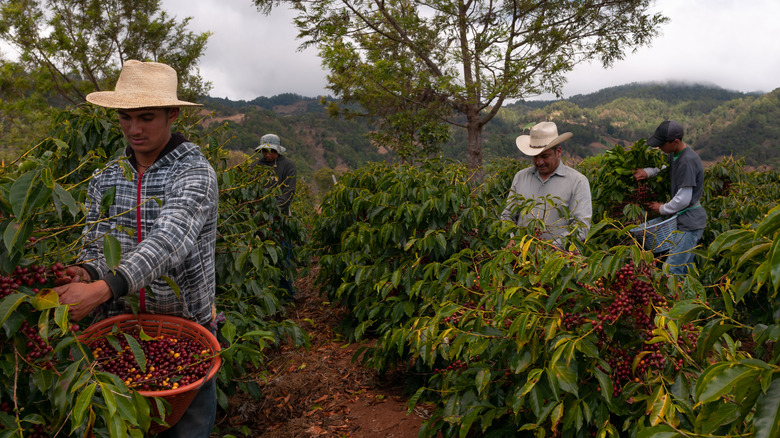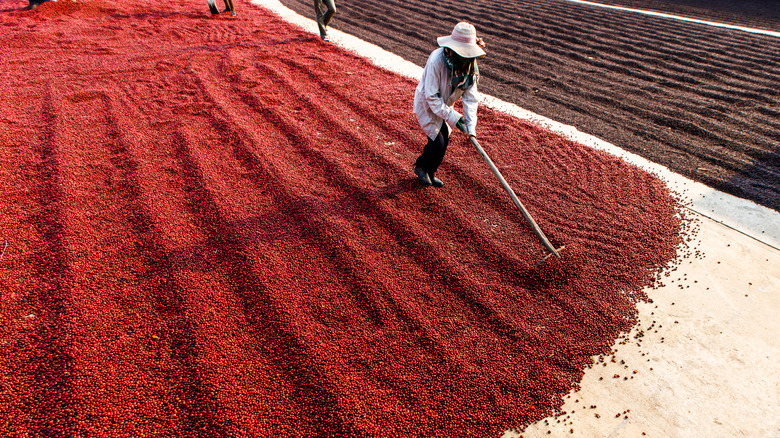Nestlé Wants To Help Coffee Farmers Increase Sustainability. Here's How
Climate change and how it's negatively affecting so many areas of planet Earth have made big headlines in recent years. On October 4, international company Nestlé announced it will target how coffee beans are grown for its coffee brands, including NESCAFÉ, by helping farmers and the land.
The Switzerland-based Nestlé cited the need to encourage sustainable farming methods because the amount of land that will be able to support coffee growing is decreasing. Nestlé said it anticipates that the amount of land suitable for coffee growing will be reduced by up to 50% by 2050 and blamed the planet's rising temperatures. Not only do people rely on coffee to fuel them through the day, but about 125 million people are financially supported by the industry, per Nestlé. According to Conservation International, the definition of sustainable coffee is simple — it's coffee that is grown using methods that conserve nature and helps the people who are involved in the farming and processing of it.
Coffee plants are particular about the environment in which they will grow so when temperatures change, the plants are negatively affected. Conservation International said that is already being seen in Mexico where some farmers are being forced to switch what kind of crops they are growing to plants that are less sensitive to changes in the climate. However, long-term that could result in less coffee being grown and then rising prices for coffee beans.
Improved coffee growing practices
To make sure coffee is grown in a way that is better for the planet and that the people who rely on the crop for their livelihood are still supported, Nestlé announced its NESCAFÉ Plan 2030, which will involve collaborating with coffee farmers to adopt regenerative agriculture practices. According to Sustainable America, regenerative agriculture is a set of practices that address the land's whole ecology, versus prioritizing the crop output. The October 4 announcement says the company aims to have 100% responsibly sourced coffee by 2025, and that 20% of its coffee will be produced by regenerative agricultural methods in three years. That amount will hopefully be 50% by 2050, per Nestlé.
"Climate change is putting coffee-growing areas under pressure," said David Rennie, head of Nestlé Coffee Brands. "Building on 10 years' experience of the NESCAFÉ Plan, we're accelerating our work to help tackle climate change and address social and economic challenges in the NESCAFÉ value chains."
Nestlé's regenerative agriculture practices will involve using cover crops that will protect the soil, utilizing organic fertilizers, and promoting biodiversity with agroforestry and intercropping. Supporting its farmers is also important to Nestlé, which says it will offer cash incentives to farmers who use regenerative agriculture practices, provide weather insurance, and will offer access to credit lines. If the NESCAFÉ Plan 2030 is successful, that would be good news for coffee growers, the planet, and people who love to drink the caffeinated beverage.

